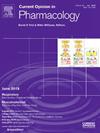人工智能驱动的 GPCR 分析、工程和靶向
IF 4.2
3区 医学
Q1 PHARMACOLOGY & PHARMACY
引用次数: 0
摘要
本文探讨了人工智能(AI)的最新进展在彻底改变 G 蛋白偶联受体(GPCR)研究方面的作用。人工智能已应用于 GPCR 研究的许多领域,包括机器学习 (ML) 在 GPCR 分类、GPCR 激活水平预测、GPCR 三维结构和相互作用建模、了解 G 蛋白选择性、帮助阐明 GPCR 结构和药物设计中的应用。尽管取得了进展,但在预测 GPCR 结构和解决 GPCR 复杂性方面仍然存在挑战,这为未来的研究和发展提供了途径。本文章由计算机程序翻译,如有差异,请以英文原文为准。
AI-driven GPCR analysis, engineering, and targeting
This article investigates the role of recent advances in Artificial Intelligence (AI) to revolutionise the study of G protein-coupled receptors (GPCRs). AI has been applied to many areas of GPCR research, including the application of machine learning (ML) in GPCR classification, prediction of GPCR activation levels, modelling GPCR 3D structures and interactions, understanding G-protein selectivity, aiding elucidation of GPCRs structures, and drug design. Despite progress, challenges in predicting GPCR structures and addressing the complex nature of GPCRs remain, providing avenues for future research and development.
求助全文
通过发布文献求助,成功后即可免费获取论文全文。
去求助
来源期刊
CiteScore
8.80
自引率
2.50%
发文量
131
审稿时长
4-8 weeks
期刊介绍:
Current Opinion in Pharmacology (COPHAR) publishes authoritative, comprehensive, and systematic reviews. COPHAR helps specialists keep up to date with a clear and readable synthesis on current advances in pharmacology and drug discovery. Expert authors annotate the most interesting papers from the expanding volume of information published today, saving valuable time and giving the reader insight on areas of importance.

 求助内容:
求助内容: 应助结果提醒方式:
应助结果提醒方式:


